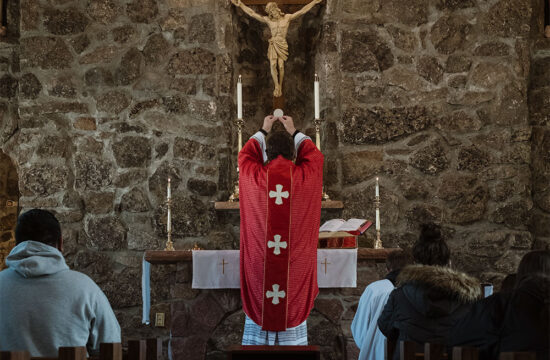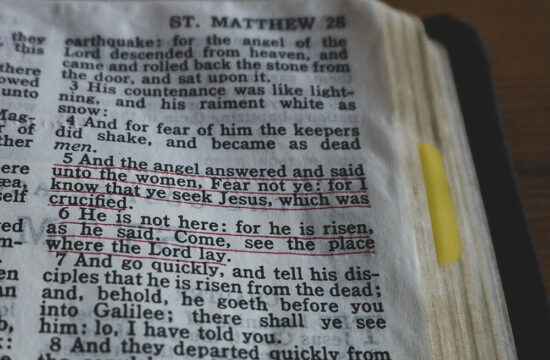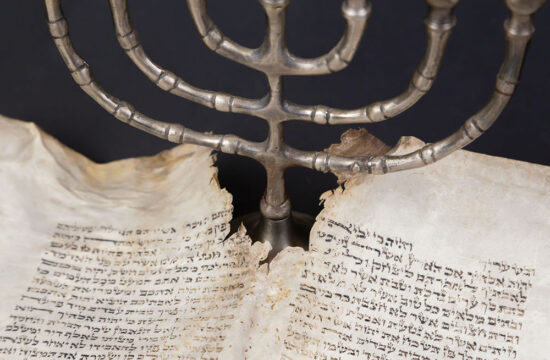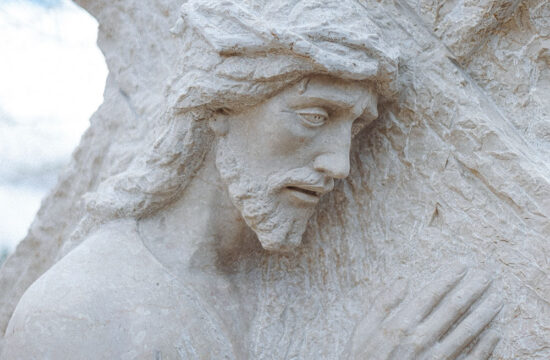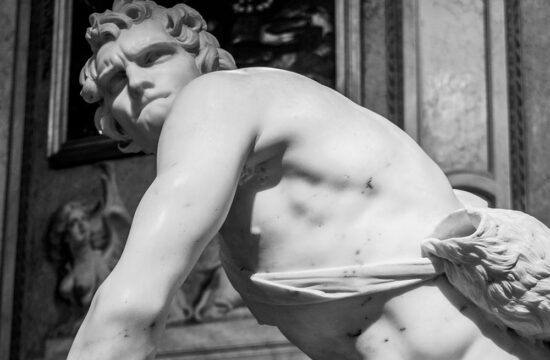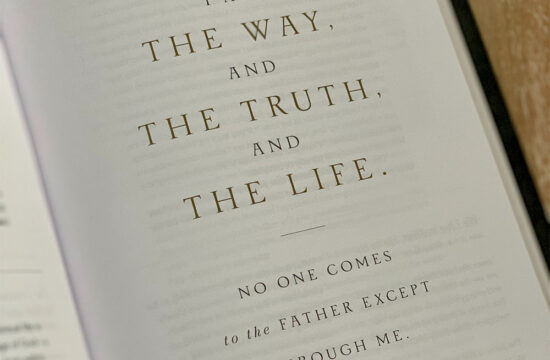DAY 267: Ezra 1 & 2; Haggai 1 & 2; Proverbs 20: 1-3
RETURN
Today we jump back into the Old Testament with a new time period called “The Return.” The title itself sounds hopeful. After chronicling a people in decline throughout the exile, a period of devastation spiritually and emotionally as they were removed from their homeland, from the promised land (because of their sinfulness) – and then learning how their capital had been pummeled and was central to them, the holiest of places on earth, the temple had been battered into a mound of rubble, they were the epitome of “rock bottom.”
We begin this period with two books – Ezra, a historical book and Haggai another minor prophet. They will both recount in different ways the importance of shaking off the understandable fog of depression that had gripped the people to hear the call to “return.” And what’s first on their list of things to do? God’s people need to return their hearts, minds, souls and bodies towards God. Which is done with true worship… Which for them means they need to rebuild the temple. Not because God needed the building Himself. He’s proven quite capable of dwelling among His people in far less lofty settings (remember that tent in the wilderness???)
The Word of the Lord spoken through Haggai asks them: Consider how you have fared… It’s a moment of reflection. How have they fared in losing the temple? How have they fared in the neglect of true worship which led to losing the temple? God, through Haggai is leading them to realize they need the temple. They need the structure of the building. They need the act of building to reorient themselves in worship God: the gathering of materials, the commitment of time and energy in the labor of the project is meant to re-order their hearts and souls. When the people return not just relocating, not just rebuilding, but through those things to return to the Lord – they will once again be living in the promise of God’s covenant who says to them, once again I have chosen you (Haggai 2: 23)
DAY 268: Ezra 3 & 4; Zechariah 1-3; Proverbs 20: 4-7
MORE THAN BUILDING
The prophet Zechariah, who was a contemporary of Haggai, was also speaking God’s word to His people of the importance of coming out of exile, of returning to the Holy Land, of rebuilding the temple. These weren’t just exterior things to accomplish, physical relocations to make. Zechariah underscores the added responsibility, call – they need to do those things spiritually, internally as well. As Jeff Cavins and Fr. Mike had pointed out in their introduction to this section “Return” on the podcast the other day, some had gotten comfortable with their lot. They had accepted “exile”, “made the best of it.” For some that would mean they wouldn’t return from exile for some time. For some that did, they would still continue some of their selfish/self-centered pursuits and actions that had first put them in exile and that they had continued once there.
Zechariah gives voice to God’s pleading. Yes it’s time to return, to rebuild – but not acting like this was some unfortunate thing that happened and we’re just going to come back, restore things and resume life before the exile. This return is meant to be far deeper and more profound. It’s a return to their promises as people of the covenant. “….Return from your evil ways and your evil deeds.” (Zechariah 1: 4)
It’s reminiscent of the calls we hear time and time again with the ongoing call to conversion. It’s more than just getting to Mass on Sunday, making a good confession at least once a year where we can check these things off as “done.” Those things are meant to trigger deeper, interior reflection, and ultimately a more personal and intimate relationship with the Lord.
DAY 269: Ezra 5 & 6; Zechariah 4-6 ; Proverbs 20: 4-7
LORD OF HOSTS
One of the things that is essential for the people in their return, in their rebuilding is their reminder that God is not asking them to accomplish things on their own, through their own strength, by their own designs or plans (in short, that’s what had gotten them into trouble in the first place). It has to begin by acknowledging their relationship with the Lord God. It has to come about through their listening, attentiveness to His word. It has to be accomplished through their obedience to His direction.
For the people who had been lost and in exile for so long, this is essential. They have quite a lot of work to do. The tasks had to have been overwhelming, and no doubt that gave life to the temptation that some of them could not resist: let’s just stay in exile. Zechariah converses with an angel who shows him visions. We hear reference to “the Lord of Hosts” which is another way of saying the Lord of angelic armies, of infinite resources. How infinite? This insurmountable mountain will become the cornerstone for the House of the Lord.
As Jeff Cavens mentioned the other day in the intro to “The Return” – one of the reasons we’re called to listen to these scriptures is to hear these reminders ourselves. To recognize that whatever mountains that seem to be impossible to overcome obstacles in our own lives, the Lord of Hosts is waiting for us to cry out to Him for His help.
DAY 270: Ezra 7 & 8; Zechariah 7-8; Proverbs 20: 8-11
THE HEART OF THE MATTER
A few years ago, when videos were first said to be going “viral” – one that considered a great deal of attention was this guy saying “Why I hate religion but love Jesus.” While -as you would imagine with a you-tube video – this individual does massive generalizations that are ignorant or misinformed about a lot of things, there’s a reason it went viral. There have been examples and there continue to be where people get lost in certain practices and forget the meaning behind them.
We see something similar in Zechariah 7 today. Two years into the rebuilding campaign, and things are starting to get re-established in terms of right worship, this delegation arrives to ask should they continue doing what they had been doing for many years. These fasts that they had been following while in exile that recalled key days when Jerusalem had been sacked, the temple had been burned. This had become a ritual for the remnant that had chosen to remain faithful to God – a time of mourning, of repenting, of remembering.
But now that they’re returning and rebuilding – some of them still want to continue to fast. They had gotten so attached to that particular ritual that they were missing what God was doing for them right then and there. How He was calling them home. This was a new time and a new day, and they were clinging on to some of the lower points of their history and the understandable sadness that went along with them. Worse than that, there was this sense that those who didn’t were the unfaithful ones.
The prophet speaks some pretty direct words. Religious practices, especially something like fasting are important. But not for God – for us. When they remind us of who God is. When they help us disconnect from the things of this world that distract us from Him and reorient ourselves to true worship, faithful relationship with Him.
DAY 271: Ezra 9 & 10 ; Zechariah 9-11; Proverbs 20: 16-19
ASK
With chapters 9 through 14 in Zechariah, we encounter quite a shift in perspectives and focus. Up till now we were reading these prophetic visions that had these angelic guides to help us to understand and navigate the restoration of Jerusalem and the people. Now we shift to the “coming of the King.” In this, we see some of the clearest messianic prophecies of the first coming of Jesus in Chapter 9, verse 9:
Rejoice greatly, O daughter of Zion! Shout aloud, O daughter of Jerusalem! Behold your king comes to you; triumphant and victorious is he, humble and riding on a donkey, on a colt the foal of a donkey
with this prophecy of the second coming of Jesus in the very next verse:
I will cut off the chariot from Ephraim and the war horse from Jerusalem and the battle bow shall be cut off, and he shall command peace to the nations; his dominion shall be from sea to sea, and from the River to the ends of the earth.
These chapters will not be short in us finding a lot of connections that we know to be fulfilled in Jesus. But one of the things that stood out in the midst of all these theological and historical nuggets was the opening of Chapter 10 of Zechariah. One word: ASK. In this very poetic chapter, we hear the Lord inviting His people to ASK. God is pushing those who first received this prophetic word to believe in this “return,” to believe that restoration was possible, to believe in what He wanted to accomplish – saving from enemies and prosperity in their going home to the land of promise. As we’ve recounted elsewhere, that’s a tall order for people, for generations having suffered so much as a result of so many poor choices. That’s why that one little word – ASK – is so loaded with meaning. It’s a word of Faith. It’s a word of Action. It’s a command given by God – to dare to voice and trust that He will accomplish what He has He would. It is a movement from doubt and despair to hope.
For those of us, on this side of history who know the fulfillment of God’s promises in Jesus Christ – a Kingdom, a Messiah far greater than any of those first listeners could have ever imagined – we can see the prophet’s voice calling us to a moment of renewal in our daily prayer. Zechariah is saying to me and you – we have far greater reason to believe, to trust, to ask.
DAY 272: Nehemiah 1 & 2; Zechariah 12-13; Proverbs 20: 20-22
STILL IN EXILE
As Father Mike had mentioned previously, this “new” book we’re starting today, Nehemiah, in the Hebrew bible is part of a single book of Ezra. I believe it’s only in more modern eras that there was a separation with Ezra dealing with the first two waves of exiles returning from Babylon. Nehemiah picks up with the third wave of exiles returning and overseeing the “rebuilding of the walls of Jerusalem.”
As we heard through our time with Ezra, physically there’s movement, but in some ways there’s still instances where the people are still in “exile.” Much to Ezra and now to Nehemiah’s chagrin, the heart is slow to learn.
In the grand scheme of biblical characters we’ve met and engaged with so far, these two don’t rate particularly notable. We don’t see or hear of any major dramatic occurrences that mark their leadership. But that’s one of the reasons they are important for us to reflect on. They are passionate, they have immersed themselves with God’s word and want desperately for their fellow Jews to have a Biblical world-view that they do to mixed-results at best. And they’re frustrated by it. Anyone of you who have friends, relatives, kids who no longer practice the faith any longer can relate to this (wait till the end of Nehemiah, parents will definitely find him relatable then! )
What we will find – is that its not just the people themselves who are in exile, but even these well-intentioned, well-meaning and often very righteous leaders are as well. It’s an important lesson for all of us, especially those trying to “lead” others to God – are we allowing ourselves to be led? How are we humbling ourselves, relying on His grace, His mercy to transform our hearts and making sure it’s His vision we’re imparting – not our own.
DAY 273: Nehemiah 3 ; Zechariah 14; Proverbs 20: 23-26
NAYSAYERS
You can never change. You’ve tried before, what makes you think this time will be different? You might start out really well, you usually do, but you know what will happen. You’re not talented enough, strong enough to see it through.
Whether it’s vocalized by someone we know, or those or thoughts that swirl in our heads, at some point in our lives – and usually every aspect: physical, emotional and spiritual – we encounter such negativity that undermines our best efforts, our desires to experience something new, something lifegiving, some needed change.
It might be of some comfort to know we’re not unique in dealing with such pessimism. We hear that in Nehemiah today. Here the man who has been steeped in prayer, is devoted to the Lord God and want’s to fortify the city of Jerusalem once again so that proper worship will be restored. Chapter 4 opens with words from their enemies: What are these feeble Jews doing? Will they restore things? Will they sacrifice? Will they finish up in a day? Will they revive the stones out of the heaps of rubbish and burned ones at that? (verse 3)
Look at what their enemies are saying. Recognize that THE enemy does the same thing to us. He diminishes…
He sows doubt…
He questions abilities…
He sets unreasonable goals in order to repeat the cycle…
He is living in the past, trying to keep the focus on past failures, setbacks as a way of saying “remember the last time, best not to get your hopes up.”
That’s precisely what our God wants us to do – to get our Hopes up. And one way to do that is following Nehemiah’s example. He doesn’t engage the enemy. He doesn’t argue with them. He doesn’t even entertain these thoughts. He engages God. He calls out to God, to casting the enemy aside. He’s not denying his feelings – he admits that this has caused grief and pain – and they are in a fragile state to begin with as they are still recovering from the exile.
But in this moment, Nehemiah demonstrates what people of faith are called to do. Too often either we believe these lies or we set out to prove to the enemy he’s wrong. In either case, we’re letting the enemy dictate the terms and we’re playing his game. We have a God who has told us to call out to Him in time of trial. We’re not to wait until the enemy has breached the walls and is coming ever closer to us. The minute we’re first aware that he mutters his nonsense at us, we’re to call out and let God fight our battles for us.
DAY 274: Nehemiah 4-5 ; Esther 11-12; Proverbs 20: 27-30
THE ORIGINAL WONDER WOMAN
Today we begin another pretty fun book for us to encounter. The book of Esther coming from 4 centuries before Christ tells another exciting story that you’d find in any good drama: power, money, villains who’s plans are foiled in the end. On the surface, there are some who’ve questioned whether it belongs in the bible at all. Why? Because God’s name is not mentioned once in it!
But scripture scholars will point that in this “seemingly secular story” you see how there’s a part 1 with a nation in decline with a shift in chapter 6 to a “part 2″ that seems to answer each of those set backs into correction and restoration. The idea is that God’s providence is at work even when all seems to be at a loss and at an end, as seemingly unlikely the “fortunes” all twist and change and fix what has been broken. As one scholar put it: When we scrutinize the text of Esther for traces of God’s activity, we are doing what the author has made us do. The author would have us probe the events we witness in our own lives in the same way. He is teaching a theology of possibility. The willingness to face history with an openness to the possibility of divine providence, even when history seems to weigh against its likelihood… In this way, the book offers a stance of profound faith” – Michael V. Fox, Character and Ideology in the Book of Esther).
Queen Esther invites us to look deeper into our world, the events that we see unfolding and ask ourselves is anything outside of God’s vision? Can He work even in the midst of violence, division, sinfulness to effect His ultimate desire to save His people?
DAY 275: Nehemiah 6-7 ; Esther 1-2; Proverbs 21: 1-4
ANOTHER SOAP OPERA BEGINS
As we enter into these first chapters of Esther, especially after weeks of the the prophets and in recent weeks Ezra and Nehemiah, it’s a little startling to hear what sounds like an episode of any common soap opera. Although the Jewish people had been permitted to return from exile to Jerusalem, some decided to remain behind in Persia. We’re hearing about what’s going on with those who remained behind. They are under the rule of King Ahasu-erus, a dictator who, unsurprisingly has no moral compass. He throws a party, a 7 day drunk fest at which he deposes his Queen Vashti when she won’t allow herself to be treated as an object of lust for his friends.
The King is now in search of a new queen, and falls for Esther, who unbeknownst to him, is a Jewish girl and she becomes the new queen. Esther’s cousin Mordecai then helps prevent the King from an assassination plot. It seems on the surface the beginning of another sad tale of the Jews cooperating with pagan rulers and things that will lead them further into sin and isolation. Yet in time, we will see how even the things that don’t seem to make sense, that God is constantly, providentially using for His benefit. Once again, that idea of His being the ultimate of GPS comes to mind… even when we make wrong turns or obstacles are found on the road, He is constantly recalculating to get us to the destination He has intended.
As we navigate the “days of our lives” (see what I did there) – may we be mindful, thankful for how His providence is always at work. The more faithful, trusting we are in Him, the more we see his handiwork from the strangest to most ordinary of occurrences.
DAY 276: Nehemiah 8; Esther 3 & 13; Proverbs 21: 5-8
ONE SEED OF PRIDE
One little bow. It seems so silly on the surface doesn’t it? At least on the surface of things, to us living here thousands of years removed it does. Yet to Mordecai a bow is a sign of worship that belongs solely to the Lord God. Haman doesn’t believe in the Lord God, his pride and ego are so vast that he’s convinced himself he’s deserving of such a gesture and so when this one person doesn’t cooperate, he’s enraged. Everyone else did. He got exactly what he wanted from everyone – but from Mordecai.
Despite the fact that Mordecai a chapter before helped save the King from an assassination plot… Despite the fact that Mordecai’s cousin/adopted daughter is beloved by the King and has been made the Queen – Haman allows this “slight” to enrage him to desire not just Mordecai – but all the Jews.
It’s amazing how evil as able to grow so rapidly and to such extremes, isn’t it? I’m thinking back to way back in Exodus, when the Lord through Moses was “taming and training” the people having been freed from Egyptian slavery and learning what it meant to be God’s people. The people back then were told “eye for an eye, tooth for a tooth, hand for a hand…” That was meant to mitigate one’s anger into a sense of justice rather than vengeance (recognizing the only one truly entitled to “vengeance” is God). As Christians, Jesus has raised the bar to surpass that sense of justice and calling us to “love our enemies.”
In any of those cases, as Christians we know that when we are hurt, when we are a victim of some wrong doing – it’s hard not to give into that temptation to want to return in kind (if not worse) That’s a basic human response that is held in check by knowing we are more than human beings – we are God’s beloved sons and daughters and that identity and relationship changes (or should) change things considerably.
As tough as that is, Haman shows us the other extreme. Without God, well even an eye for an eye won’t suffice. Today as we reflect on these scriptures, maybe we can pause and thank God for the tension we feel as we try to forgive our enemies – recognizing that even as hesistant or resistant we might be to that, it’s in that tension we find the Holy Spirit at work deep within our hearts – calling us to be who God calls us to be.
DAY 277: Nehemiah 9; Esther 4 & 14; Proverbs 21: 9-12
IN TIMES OF CRISIS
So in our introduction to Esther I had mentioned that God is not mentioned in the book. I should have explained that in the Hebrew version that is the case, but with the “additions” of the “greek chapters” (which Fr. Mike had explained divided scholars back in antiquity whether they belonged or not) that’s not the case. We get additions to chapter 4 that are not in Protestant bibles and some Jewish scriptures which is called “Mordecai’s prayer” and “chapter 14″ which is Queen Esther’s prayer.
Not to get too lost in those theological discussions because (while I find them fascinating) they can be very distracting to the main point. Even without God being mentioned specifically in the purely “Hebrew” version of the book, in the version where critics wanted to excise it for failing to mention God, when faced with a crisis of epic proportions – this death threat going out, what is the reaction of Mordecai – what is the response of the Jews? “There was great mourning… with fasting and weeping and lamenting… lay in sackcloth and ashes.”
That’s not directed to the King or to Haman… They wouldn’t be moved or care for such acts. Those are signs of repentance of intense prayer begging for the Lord God’s help. In the face of incredible once again, feeling vulnerable on their own, they call out to the Lord God to save them. Soon we will see another lowly woman who plays an important role in salvation history.
DAY 278: Nehemiah 10; Esther 15 & 6-7; Proverbs 21: 13-16
ONE SLEEPLESS NIGHT
Mordecai and Haman probably couldn’t have imagined how dramatically their fates would’ve changed in the course of one sleepless night for king Artaxerxes. Haman still enraged by the “slight” from Mordecai has his own DIY project with a gallows being constructed to execute him from – could not have imagined finding himself at the end of that very noose.
What was the key to this reversal of fortunes? To the outside world, seemingly a bunch of coincidences. The King is unable to sleep. The cure for insomnia back then was to have the book of all his great feats and triumphs read to him. As the history is recounted, that moment of treachery, where the king’s servants were planning a coup, it is recalled how Mordecai had intervened to save him. All of a sudden he’s remembering that perhaps he should’ve done something to say thank you to Mordecai – when he asks his trusted advisor what has been done, and learns nothing – and eventually that Haman had intended to kill Mordecai (and all the Jews, including his queen) suffice it to say Artaxerxes is a little bit hot.
It was seemingly a bunch of coincidences. But people of faith know there’s far more to the story. We know that in between these chapters there were a lot of sleepless nights – for the Jewish people, for Mordecai, for Esther. Now at a pivotal moment, God’s providence arrives. This is a beginning of a shift for the rest of this book where we’re going to see an answer to all the slights, all the abuses that God’s people have suffered being addressed and answered. Yes, God heard all those cries, those prayers… those days of fasting were not for naught. And the people who found no rest, will rest securely under the guiding hand of the Lord God. Whenever we’re kept awake by things that threaten and frighten us, that cause us doubt and disturb our peace – may Queen Esther pray for us and inspire us not to lose hope. The Lord God sees, and hears, and will fight our battles and bring us relief – if we just trust in Him and His providence. DAY 279: Nehemiah 11; Esther 8, 16; Proverbs 21: 17-20
DAY 279: Nehemiah 11; Esther 8; Proverbs 21: 17-20
TRUE BEAUTY
We’ve heard that obviously Esther was an attractive woman that encaptured the eye of this king Artaxerexes. We’ve seen her loyalty in helping to save her cousin, her adopted father Mordecai from the homicidal threats of Haman. But we come to a pivotal moment in today’s reading from Chapter 8. She’s not content with her own safety, the security of Mordecai now taking the position of his enemy given by the king. She goes before the King to plead for the safety and security of her fellow Jews. Even with his death, the evil of Haman’s anti-Semitic scheme designed to destroy all the Jews was “still on the books” so to speak. The law that had been passed, and the hatred that had been fostered in the people of the kingdom toward the Jews had not been eliminated with the removal of one diabolical rival (anymore than such heinous thoughts have disappeared from our world with the end of Hitler and his conspirators less than a century ago)
Esther was not going to think that just because her and Mordecai’s fortunes had turned to assume that would translate to the rest of the people. She puts herself before the king once again knowing she had a duty to the True King of the Universe – to save her people… to save His people. The promise made to Abraham centuries earlier – that God’s people would endure… the promise made to David that from his lineage would come the true and lasting King… These promises were once again renewed and affirmed through Queen Esther being obedient and faithful to the God who had always remained faithful to His people. Thus demonstrating her true beauty.
DAY 280: Nehemiah 12; Esther 9-11; Proverbs 21: 21-24
JEWISH REMEMBRANCE
Growing up in a community that had a large Jewish population, there were some holidays that were a bit more in our consciousness for a variety of reasons. Rosh Hashanah and Yom Kippur mostly because those were days off of school for us who went to public School (in time, we learned that Rosh Hashanah was celebrating their new year and Yom Kippur was the annual day of atonement). Hanukkah because we learned the song of the dreidel for our “Holiday Concert” and Passover – well, there was enough overlapping between our traditions that we all knew that holiday. But there was a holiday that was on the calendar but, because it was never a day off and we didn’t really know much else about it, it was always a bit of a mystery. Perhaps for many of our fellow travelers here, you’ve felt the same about it as well, until today: Purim.
We hear in Chapter 9 of Esther, as we come to the end of this book, how “The Feast of Purim” was inaugurated. For Jews who celebrate it to this day, it’s a two day celebration with Day 1 involving a reading of the story – with the children given all sorts of noisemakers where they can bang, boo, and just get loud anytime the name “Haman” is uttered. The second day is a day of feasting and celebrating – often with giving gifts. (Some Jews would argue that this is the more appropriate “gift exchanging” holiday rather than Hanukkah)
It’s beautiful to reflect on how God’s chosen people have inaugurated these annual celebrations of Passover and Purim to recount how God had delivered His people almost 1000 years apart from one another. These religious feasts cause the people to stop their ordinary lives and remember their identity was sealed in dramatic ways that resonate 1000s of years later.
One notable exception though would be that Moredecai’s dream being fulfilled – that the “peace to all his people” experienced as this book closes was short lived. The Jews were safe in the kingdom and Moredecai was held in high regard – but ultimately that peace would falter. Or did it? These remembrances of a story taking place 500 BC could also be seen as a prophetic foreshadowing of the true Kingdom of God being ushered in by Our Lord Jesus Christ, King of the Universe… Whose reign we see glimpses unfolding here on earth…. that is meant to keep our hearts and minds focused on that eternal, heavenly kingdom.
DAY 281: Nehemiah 13; Malachi 1-4; Proverbs 21: 25-28
LOST LOVE
Today (and only today) we deal with the last of the Minor Prophets – Malachi. But as we’ve seen before, that’s only an assessment on the length of the book. There’s nothing “minor” about his role or his message. In fact, Malachi will be the last “prophetic” voice (major or minor) in scripture. In a sense there will be a 400 year period of silence until the arrival of John the Baptist in the New Testament pointing to Jesus Christ as the Lamb of God.
At this point though, the people had returned to the promised land, the temple had been reconstructed. Sadly a recurring theme emerges once again – the people were growing lazy in their practice and adherence to practicing their faith – whether it was in marrying non-Jews; offering sacrifices that were not proper; ignoring their obligations to tithe. Starting off with God’s profession of love for His people, it quickly turns to asking is that love requited?
When you read (or listen) to these words, you realize this didn’t just happen one day. There wasn’t a specific movement or decision even to start to behave in these ways. To “backslide” as we might describe it today. These were gradual things. There were individuals making small errors that they decided “weren’t that big a deal” or “we’ll do better next time” or “it’s okay in this particular instance, this time…” Gradually the casualness, the loopholes and compromises people had made for themselves had affected the heart of devotion in the people.
Providentially, recently I was working on a reflection for myself and a group of students. And it kind of stopped me in my tracks because it was a quote from Jesus found in the Book of Revelation: “Yet I hold this against you: you have lost the love you had at first.” (Rev 2: 4). While the context of that is in a particular context and vision that St. John experienced and shared, the words really resonated with me.
The charge that Malachi brings to the “Chosen People,” that recurring temptation and failure doesn’t end in the Old Testament – nor even through the time of the life, death and resurrection of Jesus, the Early Church, the close of the canon of scriptures. As we reflect on these readings today, may we take some time to recognize how this is a temptation that everyone of God’s people has to be sensitive to and examen their hearts and souls – have they, have we “lost the love we had at first?” What are the compromises we’ve made and decided were okay that has diminished the fervor and devotion the Lord deserves?


